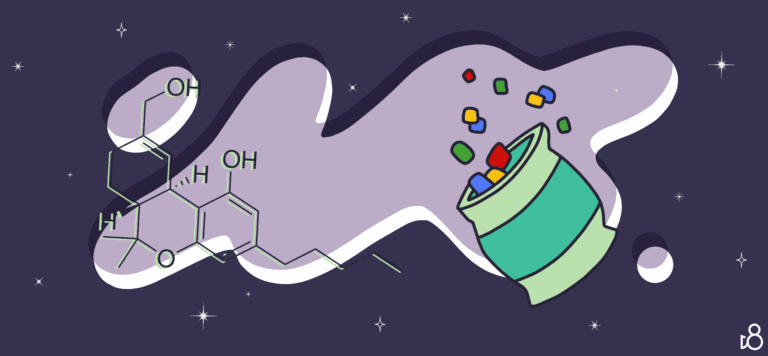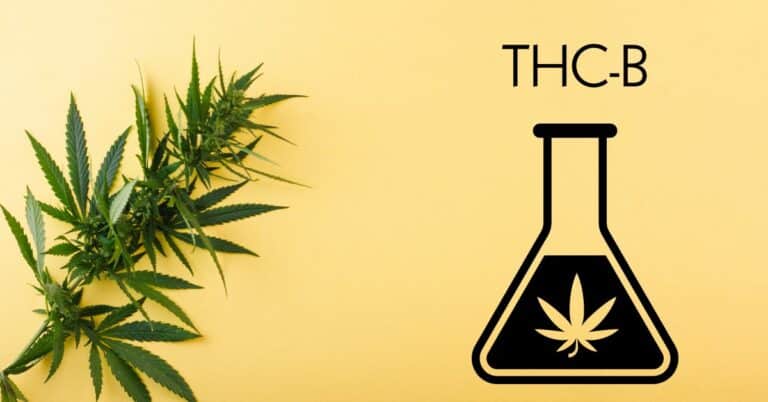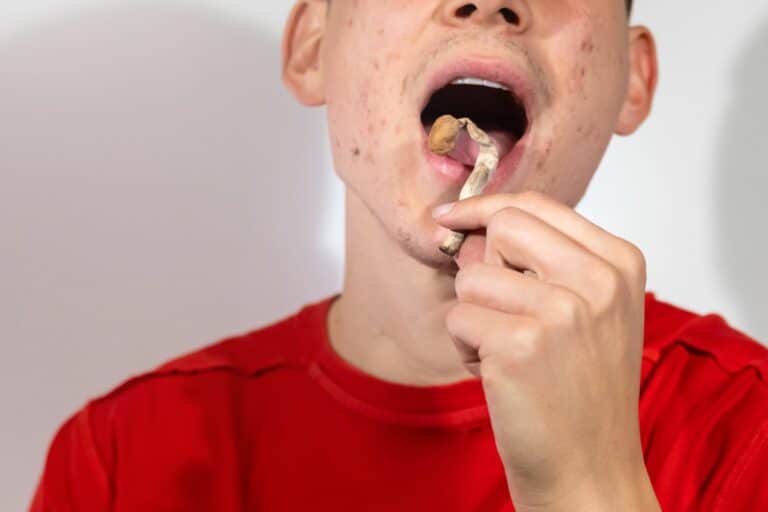Is Delta-11 THC Legal in Florida? Navigating State Cannabis Regulations
Curious if Florida gives Delta-11 a big nod? Better buckle up, because navigating cannabis laws is like chasing a rabbit down a hole – every state is its own maze. Delta-11, the lesser-known kin of the famous Delta-9 THC (yeah, that’s the buzz in weed), finds itself in a gray zone. Florida doesn’t exactly roll out the welcome mat for just anyone looking to spark up for kicks, but flash a medical card, and you’re in business. Diving into Florida’s cannabis landscape? It’s a mixed bag, with Delta-11’s standing not as black-and-white as you might wish. Stick with us to unearth what Florida truly says about this mysterious molecule – believe me, it’s a journey worth taking!
Table of contents
Navigating the intricacies of cannabinoid legality can be challenging due to the rapidly evolving legal landscape. As it stands, the legal status of Delta-11 specifically has not been explicitly stated in Florida’s statutes. What is clear is that Florida has legalized hemp and all hemp-derived cannabinoids, including CBD, meaning substances containing less than 0.3% Delta-9 THC are legally permissible under state and federal law.
If you’re considering purchasing or using Delta-11 in Florida, it’s crucial to stay informed about any changes in legislation that might affect its availability and legality. Keeping track of the legal context ensures you make well-informed decisions regarding the use of cannabinoids. Always consult with legal professionals or state regulations for the most current information pertaining to your situation.
Legal Landscape of Delta 11 in Florida
When discussing the legal landscape of Delta-11 in Florida, it’s important to recognize the complex interplay between federal and state legislation regarding cannabis derivatives. Florida’s specific laws and comparison to other states set the stage for understanding your rights and limitations.
Federal Cannabis Legislation
Federal law classifies Delta-9 THC, the primary psychoactive compound in cannabis, as a Schedule I controlled substance. Nevertheless, the 2018 Farm Bill introduced a legal distinction by removing hemp (defined as cannabis with less than 0.3% Delta-9 THC) from the definition of marijuana in the Controlled Substances Act. The bill doesn’t explicitly address Delta-11 THC, but its legal status may hinge on its source and the concentration of Delta-9 THC present.
Florida State Cannabis Regulations
In Florida, state law adheres closely to federal legislation. As such, products derived from hemp with a Delta-9 THC concentration of not more than 0.3% on a dry weight basis are generally legal. However, if Delta-11 is synthesized from marijuana as opposed to hemp, or if it contains more than the federally legal limit of Delta-9 THC, it would likely be considered a controlled substance under Florida law.
Comparison With Other States
Florida’s approach to cannabis regulation is neither the most restrictive nor the most permissive when compared to other states. Some states, like Colorado and California, have fully legalized marijuana for recreational use, which typically includes all its derivatives. Others, however, maintain strict prohibitions on any form of THC, regardless of its source. Your legal ability to possess and use Delta-11 will depend significantly on these varying state laws.
Remember, the landscape is dynamic, and legal interpretations can shift as new regulations are introduced and legal challenges are brought forth. Stay informed to navigate the legality of Delta-11 THC and related compounds in Florida.
Delta 11 THC Profile
Before diving into the specifics of Delta 11 THC, it’s crucial for you to understand that it’s one of the many cannabinoids derived from cannabis. Delta 11 is closely related to its counterparts Delta 9 and Delta 8, each with distinct effects and legal statuses.
THC and Its Variants
Tetrahydrocannabinol (THC) is the primary psychoactive component found in cannabis that is responsible for the characteristic high. THC exists in various forms, or isomers, including delta-9-tetrahydrocannabinol (commonly known as Delta 9 THC) and delta-8-tetrahydrocannabinol (Delta 8 THC). Both of these cannabinoids have been researched extensively and are known for their psychoactive properties, namely producing euphoria.
Delta 9 THC is the most abundant form in cannabis and is widely known for its potency. Delta 8 THC, on the other hand, is a less potent isomer that is often described as offering a more clear-headed experience with reduced anxiety.
Delta 11 THC vs. Other Cannabinoids
Delta 11 THC, also referred to as 11-hydroxy-THC, is another cannabinoid that has been identified in the cannabis plant. It differs structurally from Delta 9 and Delta 8 and has its own unique effects. While Delta 9 is known for its immediate onset when smoked, Delta 11 is known to be more potent when ingested, often associated with edibles. Your body converts Delta 9 to 11-hydroxy-THC in the liver, which may explain the heightened potency perceived with edible consumption.
In comparison to other cannabinoids, Delta 11 THC is not as well-known or as widely available. Relative to Delta-9 and Delta-8, the legal status of Delta 11 can be more ambiguous and depends on local legislation. Specific information on its legal status in areas like Florida would require careful examination of current laws, as regulations surrounding cannabinoids are in flux.
Product Types and Usage
When considering the landscape of Delta 11 THC in Florida, it’s important to be aware of the diverse product types and their respective uses. These range from hemp-derived concoctions to various potent and psychoactive formulations designed to meet different consumer preferences and needs.
Hemp-Derived Products
In the realm of legal cannabinoid products, hemp-derived commodities are a cornerstone. Your choice of hemp products is governed by their federally legal status, as long as they contain no more than 0.3% THC. In Florida, this includes a variety of tinctures, edibles, and vape products. You’ll find that these products are lauded for their versatility and ease of use, with hemp-derived cannabinoids often being marketed for wellness purposes.
Common Forms of Delta 11 THC
Delta 11 THC is less common than its relatives, Delta 8 and Delta 9, but still sought after for its psychoactive activity. You may come across this compound in several forms:
- Vape Cartridges: Convenient for on-the-go use and often favored for their rapid onset of effects.
- Edibles: These provide a longer duration of effect. Depending on potency, the intensity can vary significantly.
- Tinctures: These are ideal for precise dosing, with drops placed under the tongue for quick absorption.
Each form of Delta 11 THC carries its own profile of effects and duration, giving you options to tailor your cannabinoid experience to your preferences.
Regulatory Concerns and Scientific Findings
Navigating the landscape of Delta-11 Tetrahydrocannabinol (THC) legality requires understanding both regulatory frameworks and scientific evidence regarding safety and control.
Health, Safety, and Legal Implications
Your awareness of health and safety concerns associated with Delta-11 THC is crucial, as these factors greatly influence its legal status. Side effects may include altered psychoactive states, much like other THC compounds. In Florida, the legal status of Delta-11 is determined by both state hemp laws and overarching federal regulations, requiring the THC content to be below 0.3% on a dry weight basis. It’s essential to note that while hemp-derived compounds may be legal, synthetically derived THCs can be considered controlled substances.
Laboratory analysis contributes significantly to the enforcement of these laws. Proper lab testing can discern between natural and synthetic isomers, ensuring that legal products do not exceed the psychoactive thresholds set by law. Additionally, it’s important for your safety to understand the potential implications on drug tests, as current tests may not differentiate between various THC isomers.
Laboratory Analysis and Control
Laboratory control is a pivotal element in regulating Delta-11 THC. With accurate laboratory analysis, regulators can confirm proper isomerization processes and ensure products comply with hemp laws. To abide by legal requirements, you must confirm that the products have been tested and verified for their THC content and safety to avoid inadvertent consumption of illicit substances. Being informed about the methods of analysis, including chromatography and mass spectrometry, gives you the knowledge to make educated choices regarding the use of these substances.
Impact of Regulations on Consumers and Industry
Understanding the intricacies of regulations on Delta-11 and hemp-derived products is crucial for both consumers and industry stakeholders in Florida. With federal legality, distinct state laws can significantly influence market accessibility and the level of consumer awareness and education regarding these substances.
Market Accessibility
In Florida, your access to Delta-11—a hemp-derived compound—is shaped by both federal and state regulations. Federally, hemp is legal; however, Florida state law must be considered when determining the legality of specific cannabinoids like Delta-11. If Delta-11 is not listed as a controlled substance and is derived from legal hemp containing less than 0.3% Delta-9 THC, it is generally considered federally legal. This distinction is crucial for businesses seeking to operate within the legal framework and for consumers seeking products for anxiety, pain, and relaxation.
Consumer Awareness and Education
As a consumer in Florida, your understanding of hemp-derived cannabinoids and their legal status, such as Delta-11, is essential. Legal in Florida does not always equate to being educated on the compound’s uses and benefits. Responsible use of Delta-11 for anxiety relief and pain management depends on reputable sources providing clear information. Educational resources that explain the relationship between federal and Florida’s state laws ensure that you can make informed decisions when choosing products for relaxation or therapeutical use.
Remember, the regulations are designed to safeguard your interest, whether it’s ensuring product safety or defining the legal landscape for cannabinoid use and industry operation in Florida.
Future of Cannabinoid Legislations
As you navigate the complex landscape of cannabinoid regulations, it’s imperative to understand the changes on the horizon that could impact the legality of substances like Delta-11 and other hemp derivatives in Florida.
Evolving Legal Status for Cannabinoids
Florida’s legal framework for cannabinoids is in a state of flux, especially as it pertains to the federal classification of certain compounds. Cannabinoids like Delta-11 are not specifically mentioned in the Controlled Substances Act (CSA), leading to a gray area in the law. As federal law continues to evolve, so does the status of cannabinoids, potentially redefining what constitutes a federally legal substance. This reevaluation can greatly influence the legal landscape for hemp products in Florida and beyond.
The current legality of cannabinoids hinges on their origin; for instance, those derived from hemp with less than 0.3% Delta-9 THC are considered legal. However, complex cannabinoids like Delta-11, which may fall outside the typical THC profiles, challenge existing legal definitions. As such compounds become more prominent, Florida may need to adapt its regulations to clearly define their legal status.
Influence of Research and Development
The intersection of research and development with legislation cannot be overstated. As scientists uncover more about cannabinoids and their effects, you may see a shift in their legal status. Cannabinoids are being studied not just for their psychoactive properties, but also for potential therapeutic benefits, which could lead to reclassification under federal law.
With every new discovery, entities involved in the legal and scientific communities closely monitor the findings. The information gleaned from research often directs the conversation about cannabinoid regulation, including cyclic terpenoids, a class of compounds that include many cannabinoids. Your understanding of these developments is crucial as they may dictate the future legal pathways for cannabinoids.
Frequently Asked Questions
In this section, you’ll find clear and factual responses to common inquiries regarding Delta 11 THC’s legal status, its effects, and availability across various states, including Florida.
What is the legal status of Delta 11 THC in various states across the US?
Delta 11 THC is a cannabinoid similar to Delta 9 THC, and its legal status varies by state. Some states have enacted laws specifically addressing the legality of Delta 8, Delta 9, and other THC isomers, but Delta 11 THC’s legality is often less clear and may fall under general cannabis regulations.
Can the use of Delta 11 THC lead to psychoactive effects similar to Delta 9 THC?
Yes, Delta 11 THC can produce psychoactive effects akin to those of Delta 9 THC. The intensity and duration of these effects can vary based on the individual’s biology and the product’s concentration.
Are there differences in potency between Delta 11 and Delta 9?
There are differences in potency between Delta 11 and Delta 9, with Delta 9 typically being more potent. However, the specific potency of Delta 11 THC can vary and may influence the overall psychoactive experience.
How does Delta 11 THC compare to Delta 9 regarding drug testing procedures?
Delta 11 THC may trigger a positive drug test for THC, as standard testing does not typically distinguish between different THC isomers. If you consume Delta 11 THC products, it’s possible to test positive for cannabis use, similar to if you had consumed Delta 9 THC.
What are the accessibility options for purchasing Delta 11 THC products?
The accessibility of Delta 11 THC products depends on state laws. Where legal, these products might be available in dispensaries, online stores, or local shops that sell hemp-derived products.
How does state law affect the availability of Delta 11 THC in retail outlets?
State law significantly affects the availability of Delta 11 THC in retail outlets. In states with restrictive cannabis laws, you may find limited or no access to Delta 11 THC products, while in states with more liberal cannabis laws, these products may be widely available.







